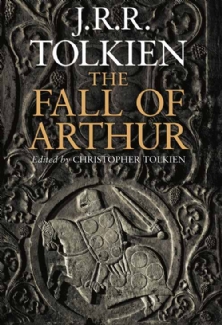
Solon never stopped speaking the truth–and it worked!
This week I’ve been getting more than the usual number of doom-and-gloom messages from readers. “We’re cooked, we’re finished, bad guys win–game over, man!”
Meanwhile, I am sometimes told that my outlook is not exactly peachy.
In Revelation, the devil, the Beast, the False Prophet, and all their gang, get thrown into the lake of fire and that’s the end of them. They don’t get to come back, ever. This is what God has told us. This is what we must believe.
Only thing is, we don’t know His timetable. The coming of the Lord may be another thousand years from now. Meanwhile, it’s a rough ride (and He warned us that it would be).
So what do we do? Win or lose, we fight. Sun Tzu tells us there are times when you can do nothing else: “On death ground, fight,” he says. And J.R.R. Tolkien used to quote an ancient Anglo-Saxon poem: “Will shall be sterner, heart the bolder, spirit the greater as our strength lessens” (https://www.goodreads.com/quotes/548454-hige-sceal-pe-heardra-heorte-pe-cenre-mod-sceal-pe).
If God’s grace be with me, and for as long as He gives me strength, I’ll fight: never to surrender to the social and political fads, the wicked nonsense of this world, which is handed up from Hell to its servants on the earth–from spiritual wickedness in high places. I will not be browbeaten into saying yeah, sure, I’m all for the whole sexual anarchy bit, transgender included. I will not support abortion. I will not say things are true when I know them to be false, because some tyrant threatens me.
Those of us who are “old” have an advantage.
When Solon the lawgiver was an old man, the Athenians threw out the wise and just laws he’d given them and fell under the hand of a tyrant, Pisistratus. Everyone became very small and quiet–everyone but Solon, who never passed up an opportunity to criticize Pisistratus and his policies. His friends were horrified: they knew what happens to people who diss tyrants. “Solon,” they wondered, “what gives you the courage to stand up to the tyrant?” And he answered, “My old age.”
The rest of the story: as tyrants go, Pisistratus was pretty much top-of-the-line. He came to admire Solon, began to listen to him, and wound up canceling or amending many of his worst public actions because Solon had made him see how wrong they were. Who knows what might have happened, had Solon lived longer?
The rest of the rest of the story: Pisistratus’ successors were made of shabbier stuff than he, and finally had to be assassinated. Should’ve listened to Solon.
So we ought to speak the truth, even if it feels like we’re only shouting into the wind. We cannot know who’ll hear us. We often can’t know how God will use us. He has placed us as watchmen on the walls. As He told Ezekiel, He will hold us responsible for sounding the alarm; but He will not hold us responsible for whoever chooses not to hear it.
